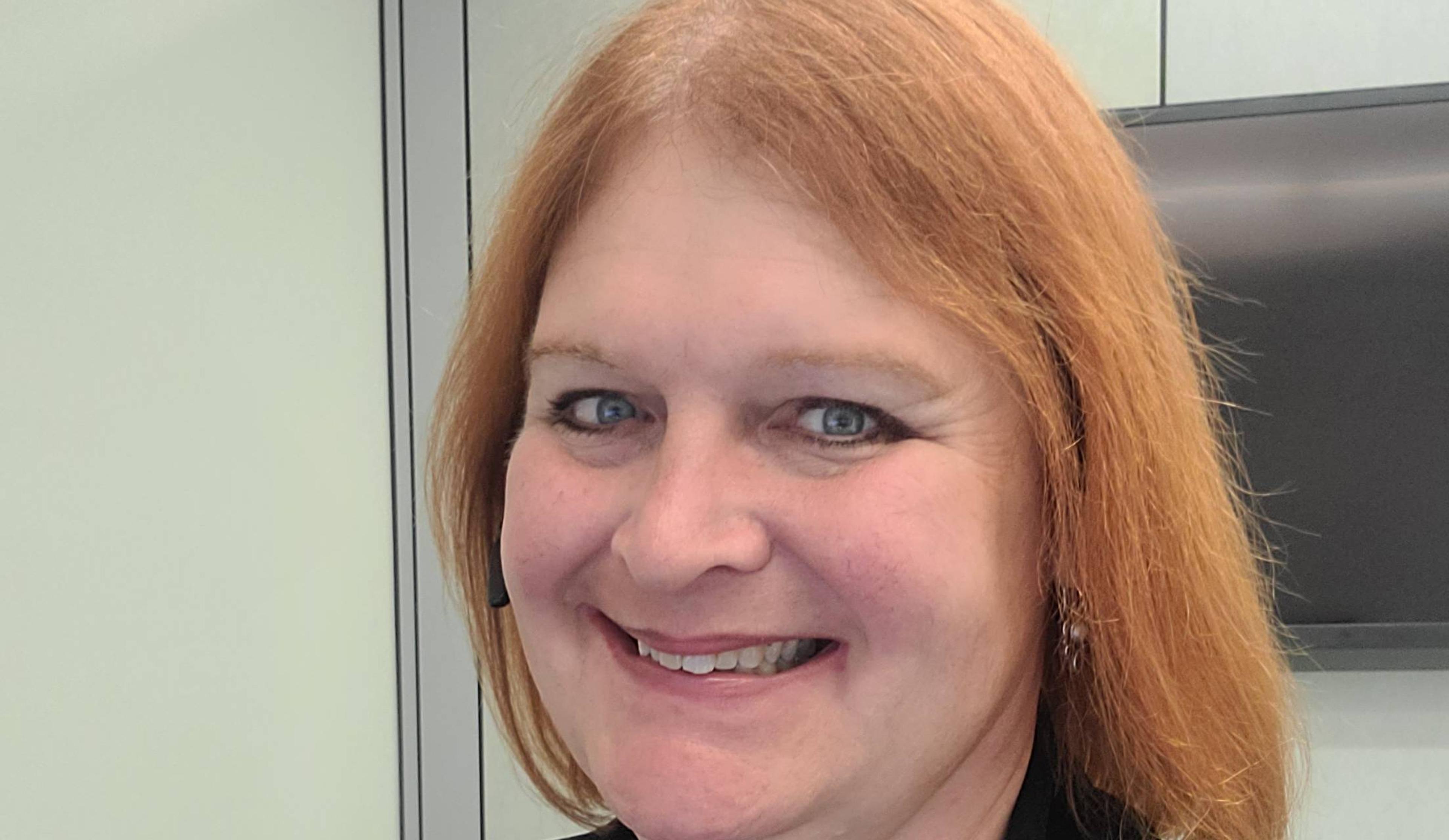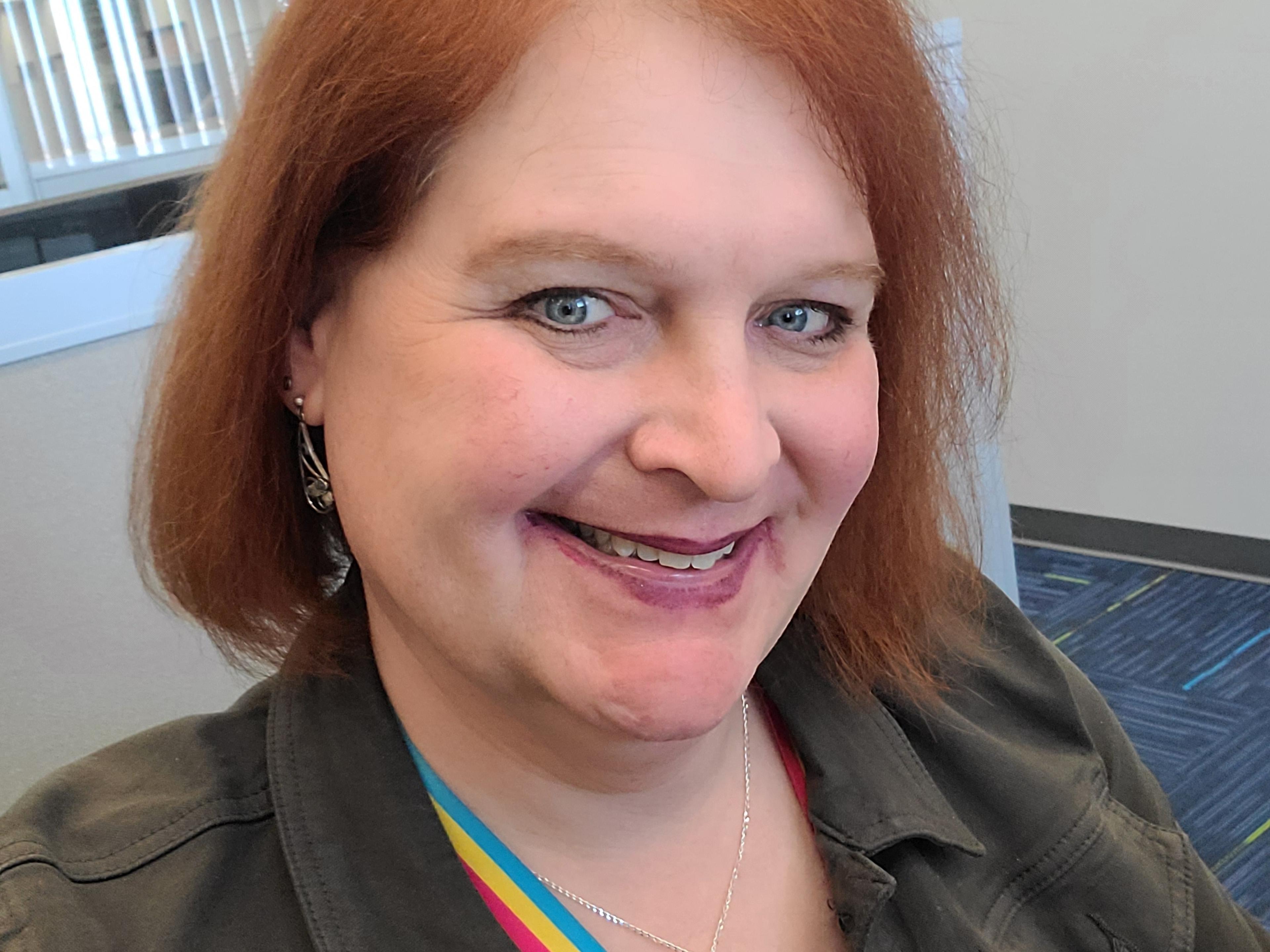National Coming Out Day: ‘I Realized That, At Long Last, I Could Be My Authentic Self’
Jake Newby
| 4 min read

By early 2020, Stephanie Munier had come out as Transgender to everyone except her coworkers. Her family and friends were supportive, so were her teachers and classmates at night school. But the last domino to fall was her workplace, and it was last for a reason.
“My career was important to me. That’s my livelihood,” Munier said. “If coming out to family goes badly, that’ll make me sad. If coming out to friends goes badly, same thing. If coming out at work goes badly, I might not be able to pay the rent.”
Munier still struggled to push that last domino down right as the COVID-19 pandemic began. She remembers dressing up every morning in men’s clothing, then going to work and using her old name. After work, she’d run home, do her makeup, change her hair, change into women’s clothing and hurry off to school, where she could go by the name she chose for herself.
“At the time, it’s something that was logistically difficult,” she said. “It was a lot of work to put in to be two different people in two different spaces. I didn’t really experience a sense of fear, it was more of an obligation to be who I was expected to be in these different spaces.”
Munier had no idea that a morning in mid-March 2020 would be the last time she’d have to put on a button-down shirt to go into the office. Her team leaders told her she and the rest of her department would be working remotely for at least six weeks as the world started to shut down. A few weeks later, Munier crafted one of the most important emails of her life and sent it to her team at Blue Cross Blue Shield of Michigan (BCBSM).
“I sent an email on a Monday afternoon that said, ‘Hello. Just so everyone knows, I’m changing my name. This is my new name. There are new pronouns attached to that name. My pronouns are she, her and hers. Nothing else is changing, just please be advised,’” Munier recalled.
A week prior to this meeting, Munier reached out to a “trusted leader” at the company to give them advanced notice.
“He said, ‘thank you for reaching out. This is a welcoming and affirming workplace, both by culture and by policy,’” Munier said, recalling her team leader’s response. “’If you need help from myself or other members of leadership with this process, please let me know and we’ll provide whatever support we can.”

One by one over the course of that week in 2020, higher ups in Munier’s department reached out to show their support, from her team lead to her manager to her director. She remembers being thrilled to have such firm support from her superiors. But she couldn’t fully breathe that long awaited sigh of relief quite yet. The nature of her job as an IT manager required Munier to work on projects with multiple departments. So, she sent that same email to multiple employees, multiple times.
“The recipient count piled up very quickly just because of the nature of my work,” Munier said. “By the end of the week I had basically contacted all the people I worked with on a regular basis and by Friday afternoon, that’s when I got to breathe that big sigh of relief. I realized that, at long last, I could be my authentic self. The part of my life where I had to maintain a separate identity was over.”
Munier said she’s grateful for the work BCBSM has put in to build a safe and welcoming work environment.
“Hearing Stephanie’s story warms my heart in so many ways,” said Bridget Hurd, vice president, Inclusion and Diversity, BCBSM. “One, the fact that our workplace community wrapped its arms around Stephanie speaks to the importance of sustaining a workplace culture that recognizes and respects the diversity of our workplace community. It also speaks to the important actions of allyship, inclusion, and creating a workplace where employees can feel like they belong.”
Though her experience has been a positive one, Munier recognizes not everyone who struggles with coming out can do so confidently at work. Ahead of National Coming Out Day, Munier said coming out at work won’t feel so daunting if someone – whether it be a trusted colleague, team leader or ally – is there to stand with you.
“A big key for me was finding trusted allies,” Munier said. “Allies who can provide personal, professional and practical support. Coming out at work can be difficult and can be much more difficult for people who try and do it alone. I was very fortunate to find some kind and well-trusted allies who helped me talk through things, helped me with some of the practical aspects, and who were willing to have some potentially difficult conversations in cases where I did not want to.”
Related:
- Addressing Health Care Disparities in the LGBTQ+ Community
- ‘You Don’t Have to Suffer Silently:’ Examining Women’s Health Disparities and the Importance of Self-Advocacy
- Older Gay Adult Credits Detroit Hannan Center’s Inclusive Mental Health Services, Intergenerational Community Programs with Helping Him Through Personal Struggles
Photo credit: Stephanie Munier





